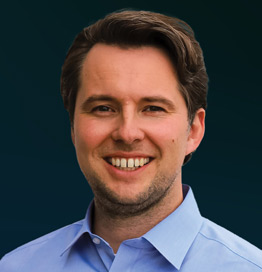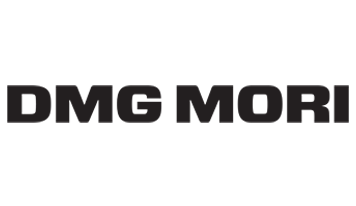

Nils Niemeyer
General Manager
DMG Mori Additive Solutions for North America
Nils Niemeyer possesses 15+ years of manufacturing experience. Prior roles span Production Strategy, Product Management, Sales, and Service in factories and regional organizations. His AM passion ignited as a Global Manufacturing Consultant at Siemens, where he explored AM's versatile applications, recognizing its disruptive potential in design and supply chain resilience alongside traditional manufacturing methods.
Nils earned a Dipl.-Ing. (B.Sc and M.Sc equivalent) in Mechanical Engineering and Production Technology from RWTH Aachen University, cultivating precision machining technologies in research institutes like RWTH Aachen University's Machine Tool Laboratory (WZL) and the Laboratory for Precision Machining (LMP) at University of Santa Catarina (UFSC), Brazil. He is currently pursuing an MBA at the University of Chicago's Booth School of Business, enriching his technical background with business and entrepreneurship acumen.
![]()
Dynamic . Excellence – worldwide
Digitization is changing our world both quickly and radically. The switch to digitization requires fundamental further development which can only be achieved globally and jointly, in strong partnerships and on an equal footing. DMG MORI continues to develop positively – technologically, structurally and culturally. Our business is marked by Dynamic and Excellence.
https://us.dmgmori.com/products/machines/additive-manufacturing
https://us.dmgmori.com/news-and-media
https://us.dmgmori.com/news-and-media/blog-and-stories
![]()
DMG MORI Advanced Solutions, Inc at RAPID + TCT 2024
Booth 2039
As a global full-liner with over 20 years of experience in the ADDITIVE MANUFACTURING of metal parts, DMG MORI represents innovative manufacturing technologies. The portfolio includes four complete process chains for additive processes using powder nozzle or powder bed technologies. For this integral offer DMG MORI combines its LASERTEC SLM models and the LASERTEC 3D series with the machining centers from its broadly diversified machine portfolio. DMG MORI has performed successfully on the market since 2013 with the combination of laser deposition welding and metal-cutting machining on the machines of the LASERTEC 3D hybrid series. While the LASERTEC 65 3D is geared solely towards laser deposition welding as a complement to existing machining centres on the shop floor, the LASERTEC SLM series expands the portfolio to include the powder bed method using selective laser melting. Thanks to the combination of additive manufacturing technologies with conventional CNC machines DMG MORI realized four process chains. The integral software solution for CAM programming and machine control CELOS rounds off the process chains with the LASERTEC SLM series.
Join DMG MORI, on the Main Stage for the Executive Perspective Keynote Series Panel
Tuesday, June 25, 2024
8:30 AM | SME Main Stage
Keynote Series Executive Perspective
Nils Niemeyer, General Manager, DMG MORI
Gain unparalleled access to the minds shaping the global additive manufacturing landscape. Join us each morning as we kick off RAPID + TCT with our inaugural Executive Perspectives Panel discussions. Meet industry luminaries each day as they tackle your biggest AM questions. Hear about innovative trends, industry evolution along with the greatest opportunities and challenges for the future of AM. Don’t miss these must-attend inspiring talks.
See DMG MORI on the RAPID + TCT Conference Stage and Tech Hub
Tuesday, June 25, 2024
11:30 AM | Conference Room 407
Unleashing Precision and Performance: AI Controlled Programmable Laser Provides Step Change in L-PBF Production
Primary Presenter: Nils Niemeyer, General Manager, DMG MORI
Co-Presenter: Robert J. Martinsen, CTO, nLIGHT
The presentation will explore the intersection of latest laser technology and the power of artificial intelligence in additive manufacturing. We will unveil how a Programmable Laser, integrated with AI-based software control, is revolutionizing productivity, enhancing melt pool characteristics, and reducing the cost per part. Real examples form the tooling industry will be shared.
A Programmable Laser, coupled with AI-based software control, represents a synergy of precision and adaptability. This intelligent integration enables real-time or pre-populated adjustments of laser parameters based on continuous feedback from the manufacturing process, resulting in dynamic optimization of the build.
Productivity is greatly enhanced through AI's ability to autonomously fine-tune laser settings, adapting to part geometries and material properties. This adaptability minimizes downtime associated with parameter setup and optimizes energy delivery, translating into shorter lead times and improved throughput.
The effect on melt pool characteristics is equally impressive. AI-driven control ensures optimal energy distribution, minimizing defects, such as spattering and porosity. The result is exceptional part quality, a critical factor in tooling applications where precision is of paramount importance.
Moreover, the new machine concept maximizes cost-effectiveness by optimizing output on a single laser machine resulting in reduced cost per part of up to 3X cheaper compared to conventional machines.
Our presentation will feature real-world examples showcasing the synergy of AI and Ring mode Laser technology in tooling applications, illustrating how this dynamic duo is poised to reshape the future of additive manufacturing. Don't miss this opportunity to witness the convergence of laser innovation and artificial intelligence, forging a path toward unprecedented levels of productivity, precision, and cost efficiency.
Thursday, June 27, 2024
11:30 AM | Conference Room 404 AB
Hybrid Direct Energy Deposition: A Cutting-Edge Manufacturing Process for Complex Parts, Tools, and Repair
Primary Presenter: Brent Pedersen, Product Sales Manager - USA West, DMG MORI Additive Solutions
Hybrid Directed Energy Deposition (DED) is a cutting-edge manufacturing process that combines additive and subtractive technologies in a single machine tool. This process enables the creation of complex parts and tools, consisting of multiple materials, with minimal design restrictions. Hybrid DED also allows for the fast repair of damaged components like molds and dies, reducing downtimes, waste, and cost, compared to acquiring new equipment. As a young technology, Hybrid DED is constantly evolving. In this presentation, we will provide an overview of the advantages of Hybrid DED over traditional manufacturing processes and discuss the latest developments in Hybrid DED technology, such as bimetallic applications, advanced process monitoring and Hybrid DED lathe machine tools. We will further demonstrate successful use cases for Hybrid DED repair applications.
